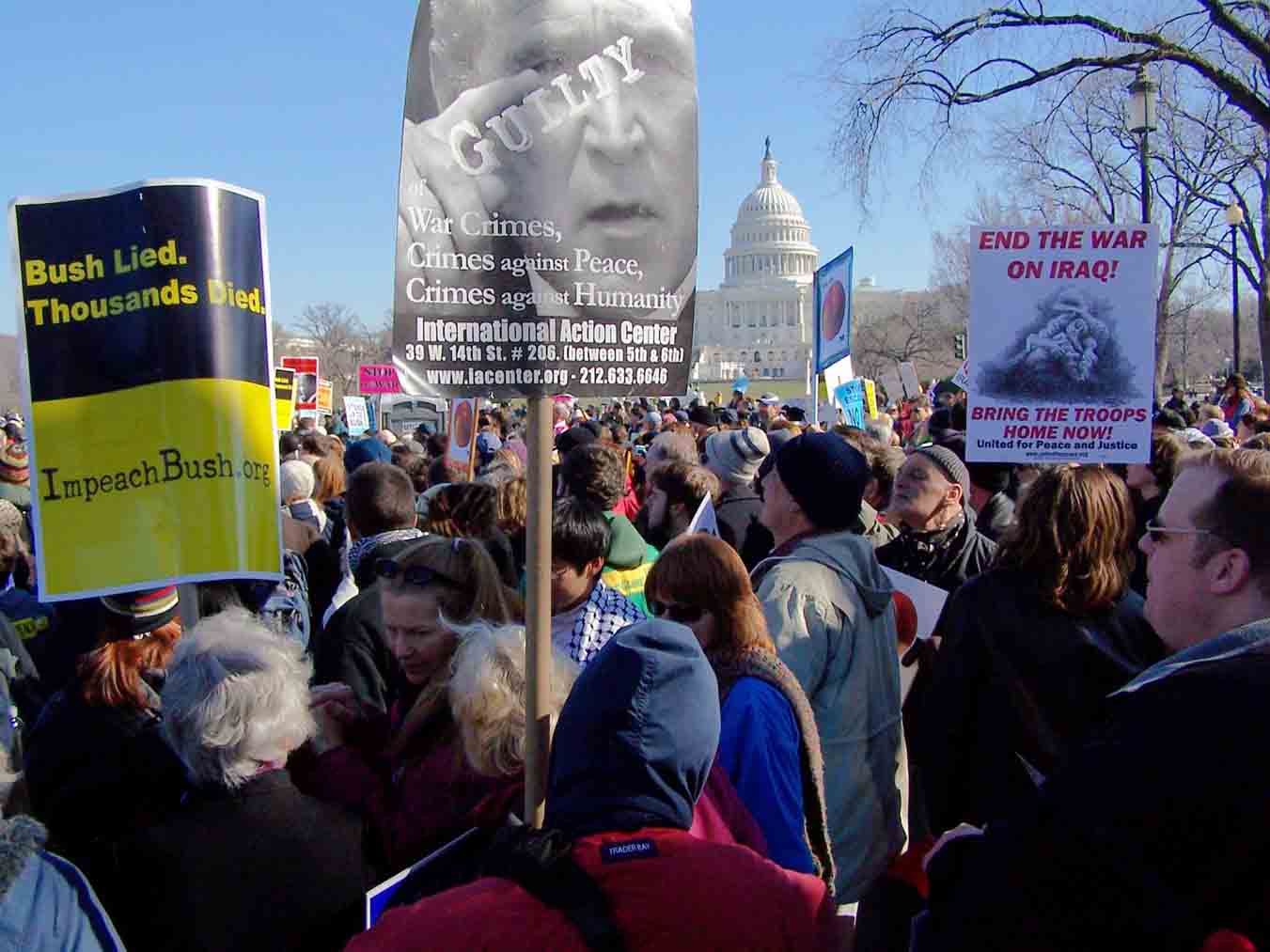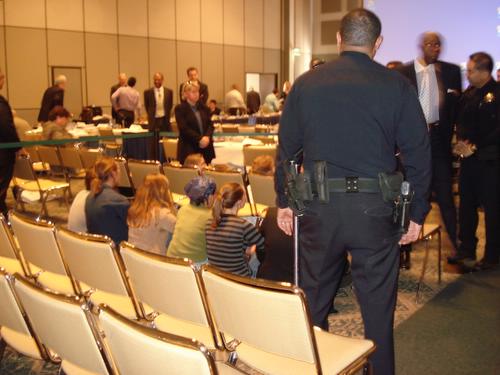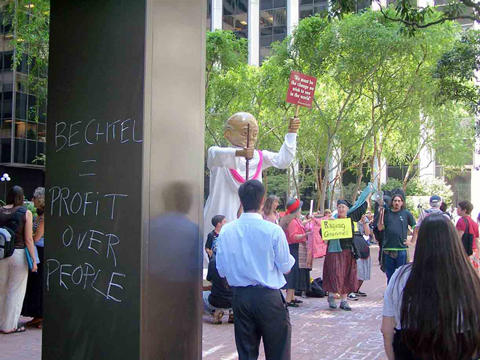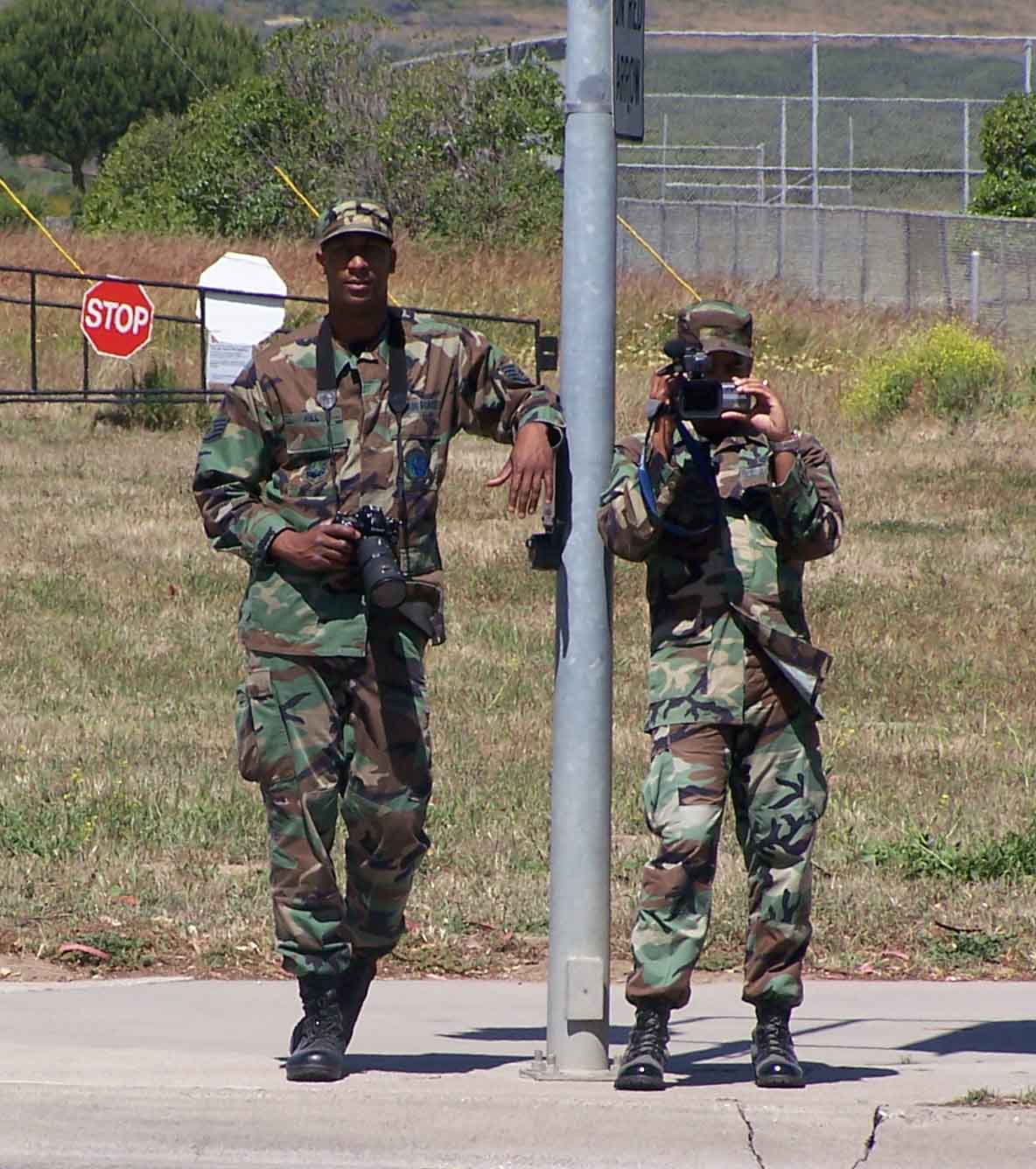Andrew Lichterman
“Contemporary historians, confronted with the spectacle of a few capitalists conducting their predatory searches round the globe for new investment possibilities and appealing to the profit motives of the much-too-rich and the gambling instincts of the much-too-poor, want to clothe imperialism with the old grandeur of Rome and Alexander the Great, a grandeur which would make all the following events more humanly tolerable…. The only grandeur of imperialism lies in the nation’s losing battle against it. The tragedy of this half-hearted opposition was not that many national representatives could be bought by the new imperialist businessmen; worse than corruption was the fact that the incorruptible were convinced that imperialism was the only way to conduct world politics.” Hannah Arendt, Imperialism (Part Two of The Origins of Totalitarianism); (New York: Harcourt Brace Jovanovich, 1968), p.12
This week I received an e-mail fund raising pitch from an arms control group that bills itself as the peace movement’s electoral arm. I have removed the name of the group because the message typifies certain characteristics of “mainstream” discourse on issues of war and peace, characteristics that can not be narrowly attributed to– or blamed on– a particular individual or organization.
Here are the e-mail’s opening paragraphs, which capture the essence:
“Dear Friend,
Republicans have again reached for the gutter. You knew they would do it. In a desperate attempt to win the election, the National Republican Congressional Committee (NRCC) began running a deceptive TV ad attacking [name of state] Democrat [name of candidate] for receiving support from [name of group]. You can watch the ad on our website.
Contribute $35, $50, or more to [name of group] and help us respond to this Swift Boat style attack!
The ad is a typical GOP distortion.
It claims we recommend cutting $130 billion from the Pentagon’s budget. False.
What we do favor is cutting Cold War weapons and focusing on equipping our brave soldiers fighting in Afghanistan and Iraq with what they need: body armor, fully armored vehicles, Predator drones, the best communication equipment, and beefed-up Homeland Security - including protection of our food and water supplies, and chemical and nuclear plants.”
The e-mail massage also had a link pointing readers to a “list of security programs supported by [name of group],” including not only the body armor, unmanned aircraft, and armored vehicles promoted in the e-mail, but such programs as the F-35 Joint Strike Fighter, the Littoral Combat Ship, better countermeasures for improvised explosive devices, and increased funding for precise, low-yield munitions–a good start on a shopping list for invasions and occupations present and future.
So: a fund raising pitch from a “peace” organization–not a “strategic” communication to hypothetical undecided swing-state voters, mind you, but a message aimed at being persuasive to their own “peace”-oriented base–that proudly proclaims that this organization does not advocate major military spending cuts, but instead advocates better weapons to fight bloody wars of occupation (with one of them, the Iraq war, also clearly being illegal from the outset). There was not a word in the e-mail to suggest that the Iraq war was a bad idea, or that endless pursuit of global military dominance is a bad idea, or that a military budget approaching a half trillion dollars a year is a bad idea.
This message echoes the approach taken by many Democratic Party politicians to “peace” issues this election season (and for many years now): it neither makes a case against U.S. wars of aggression, nor addresses the causes of the wars the U.S. fights. Instead, “opposition” is limited to “pragmatic” advocacy of what purportedly would be a cheaper, more efficient, less risky mix of weapons. But these weapons still will be used to advance a goal of permanent U.S. global military dominance that remains largely unquestioned by mainstream politicians and “arms control and disarmament” groups alike. And it is more than likely, if past performance is any guide, that little in this approach will change regardless of the outcome of the Congressional elections. If Democrats win, those who control the money and the visible platforms in the Democratic party and the constellation of thinly-disguised advertising agencies that roughly serve as its “intellectual” establishment will claim victory for their focus group-tested “moderate” approach. If they lose, they will seek to hang defeat on “the Left,” implying that “they” (despite being virtually invisible) somehow blurred the carefully confected vision of a slightly kinder, gentler empire that otherwise surely would have captured just enough of some all-important group of voters, however instrumentally stereotyped in this year’s jargon: NASCAR dads, security moms, the role of ordinary people in politics reduced to answers to questions we never get to choose.
It is impossible to know in the case of any particular organization or individual which motivation prevails–”bought by the new imperialist businessmen” or simply “convinced that imperialism [is] the only way to conduct world politics.” But what is clear is that most U.S. politicians and most U.S. “national security” and “foreign policy” professionals, regardless of party affiliation, fall into one or the other category. If there is to be a movement in this country for global justice and hence for any real peace, we are going to have to put it together largely without them. We can begin by refusing to give either money or votes to politicians, parties, and organizations who respond to U.S. wars of aggression by suggesting better ways to fight them.








